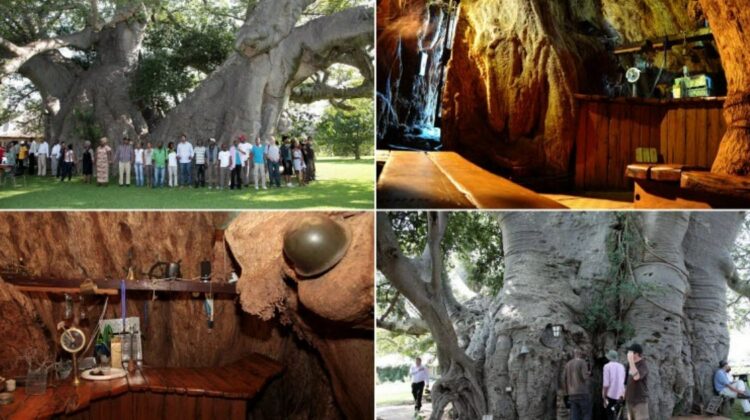
Imagine raising a glass in a cozy pub carved from the hollowed trunk of a 6,000-year-old baobab tree. That’s exactly what visitors experienced at the Sunland Big Baobab in South Africa, also known as the Pub Tree.
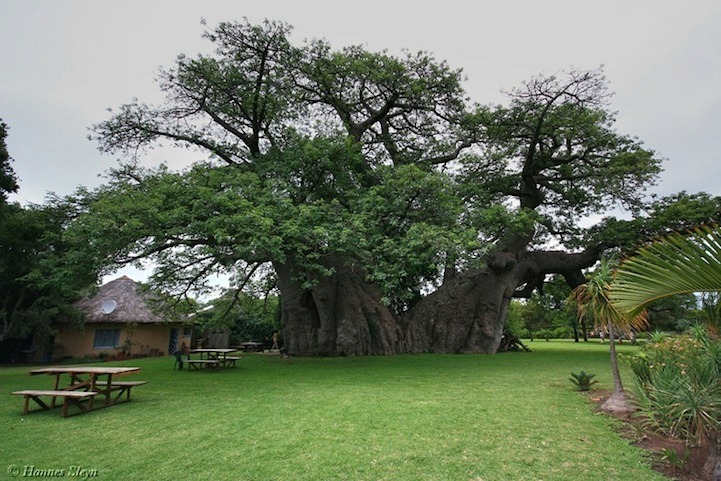

This massive baobab boasted a circumference exceeding 108 feet, with its branches reaching majestically towards the sky at nearly 75 feet. Remarkably, nature had split the Sunland Big Baobab into two large, connected sections. These sections each possessed cavernous hollows within, further connected by a passage. These enormous hollows are a defining characteristic of baobab trees, forming after they reach the impressive age of one thousand years. In the case of the Sunland Big Baobab, these hollows transformed into a truly remarkable sight: a one-of-a-kind pub and wine cellar.
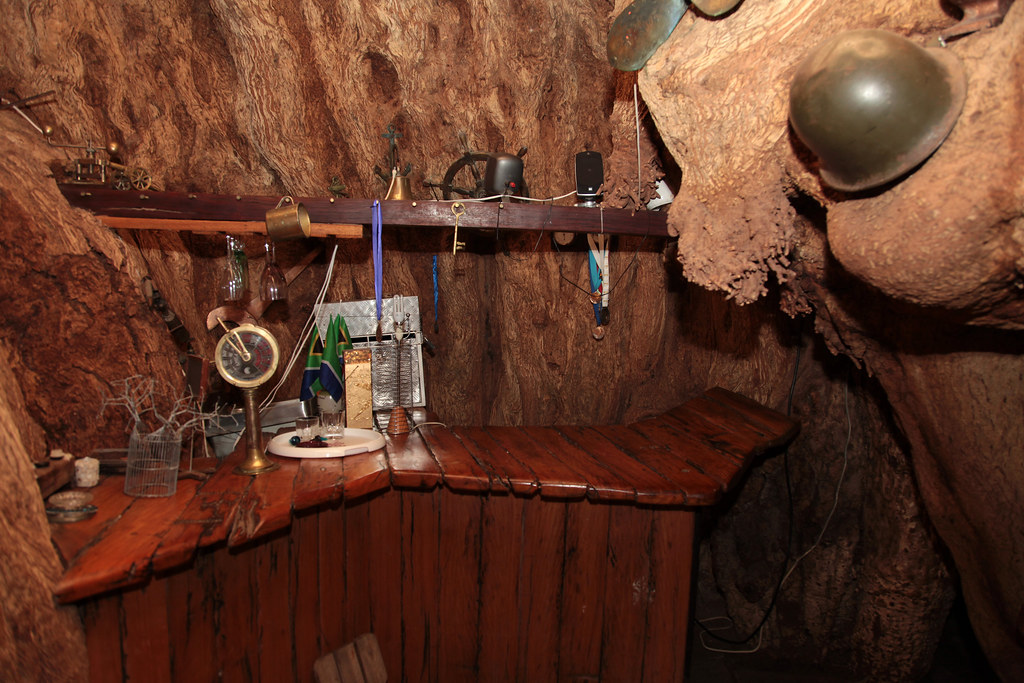
The transformation began in 1993 when the owners of Sunland Farm, situated near Modjadjiskloof in Limpopo Province, South Africa, saw the unique potential within the baobab. However, before creating their vision, a significant layer of compost needed to be removed, revealing the floor roughly a meter below ground level. Following this, a railway sleeper pub was meticulously constructed inside one of the hollows. Access was provided through a door installed in a naturally formed square opening within the trunk. The newly formed pub boasted all the charm you’d expect, complete with draft beer on tap, comfortable seating, and a music system. Historical accounts even mention a lively party with a record-breaking 60 attendees!

The second hollow wasn’t neglected; it was transformed into a temperature-controlled wine cellar, thanks to the natural ventilation system of the giant baobab. With a constant temperature of 22°C, it provided the perfect environment for wine storage.
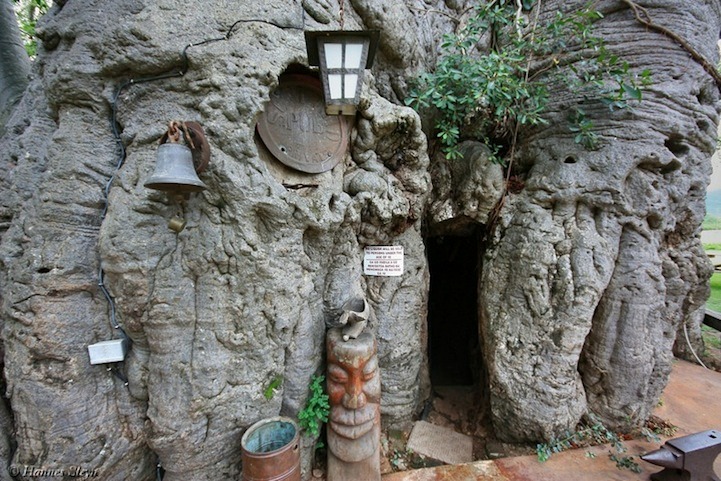
Stepping inside the cozy pub, visitors were greeted by 13-foot ceilings and warm, wooden benches that could comfortably seat fifteen patrons. Shelves adorned the walls, showcasing historical knickknacks that whispered tales of the Pub Tree’s unique story. Further adding to the atmosphere, a classic dartboard hung proudly on one of the baobab’s interior walls, completing the quintessential pub experience. The baobab was part of a working farm owned by the Van Heerden family, who even offered bed and breakfast accommodations for those seeking a truly unforgettable stay.
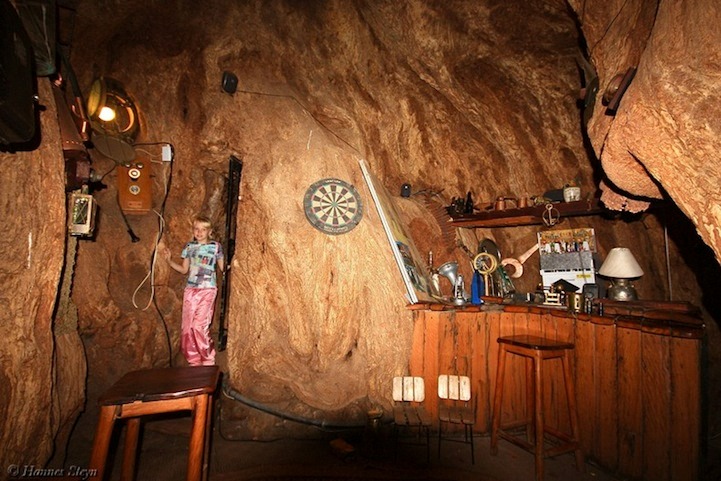
Sadly, this remarkable story took a tragic turn in 2017. The already compromised structure of the tree, weakened by a significant split two years prior, finally succumbed and gave way. A scientific study published in 2018 revealed a chilling truth: the Sunland Baobab wasn’t alone in its demise. The report indicated that “the majority of the oldest and largest African baobabs [have died] over the past 12 years.” The weight of evidence points towards climate change as the culprit behind this ecological tragedy.
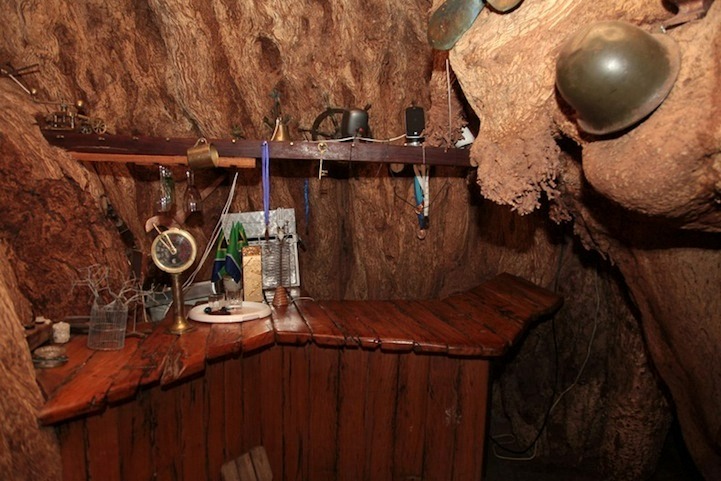
The Sunland Pub may be gone, but its story serves as a powerful reminder of the awe-inspiring beauty and resilience of nature. It also stands as a stark warning of the potential consequences of climate change on our planet’s most precious natural wonders.

Leave a Reply